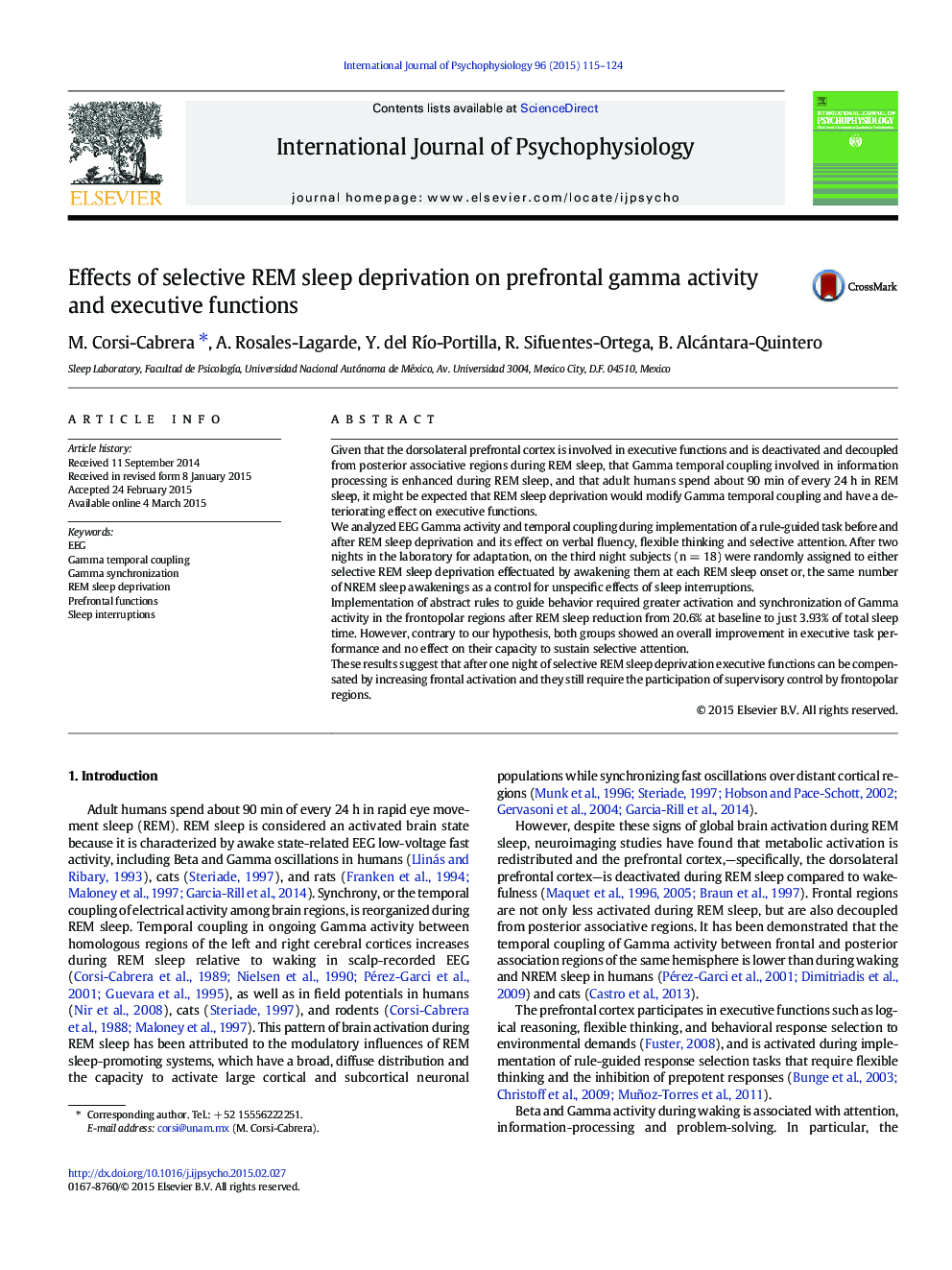| Article ID | Journal | Published Year | Pages | File Type |
|---|---|---|---|---|
| 931079 | International Journal of Psychophysiology | 2015 | 10 Pages |
•Prefrontal control is still required for executive tasks after REM sleep deprivation.•REM sleep deprivation enhances Gamma synchronization in rule-guided task performance.•REM sleep deprivation does not affect logical reasoning capacity.
Given that the dorsolateral prefrontal cortex is involved in executive functions and is deactivated and decoupled from posterior associative regions during REM sleep, that Gamma temporal coupling involved in information processing is enhanced during REM sleep, and that adult humans spend about 90 min of every 24 h in REM sleep, it might be expected that REM sleep deprivation would modify Gamma temporal coupling and have a deteriorating effect on executive functions.We analyzed EEG Gamma activity and temporal coupling during implementation of a rule-guided task before and after REM sleep deprivation and its effect on verbal fluency, flexible thinking and selective attention. After two nights in the laboratory for adaptation, on the third night subjects (n = 18) were randomly assigned to either selective REM sleep deprivation effectuated by awakening them at each REM sleep onset or, the same number of NREM sleep awakenings as a control for unspecific effects of sleep interruptions.Implementation of abstract rules to guide behavior required greater activation and synchronization of Gamma activity in the frontopolar regions after REM sleep reduction from 20.6% at baseline to just 3.93% of total sleep time. However, contrary to our hypothesis, both groups showed an overall improvement in executive task performance and no effect on their capacity to sustain selective attention.These results suggest that after one night of selective REM sleep deprivation executive functions can be compensated by increasing frontal activation and they still require the participation of supervisory control by frontopolar regions.
